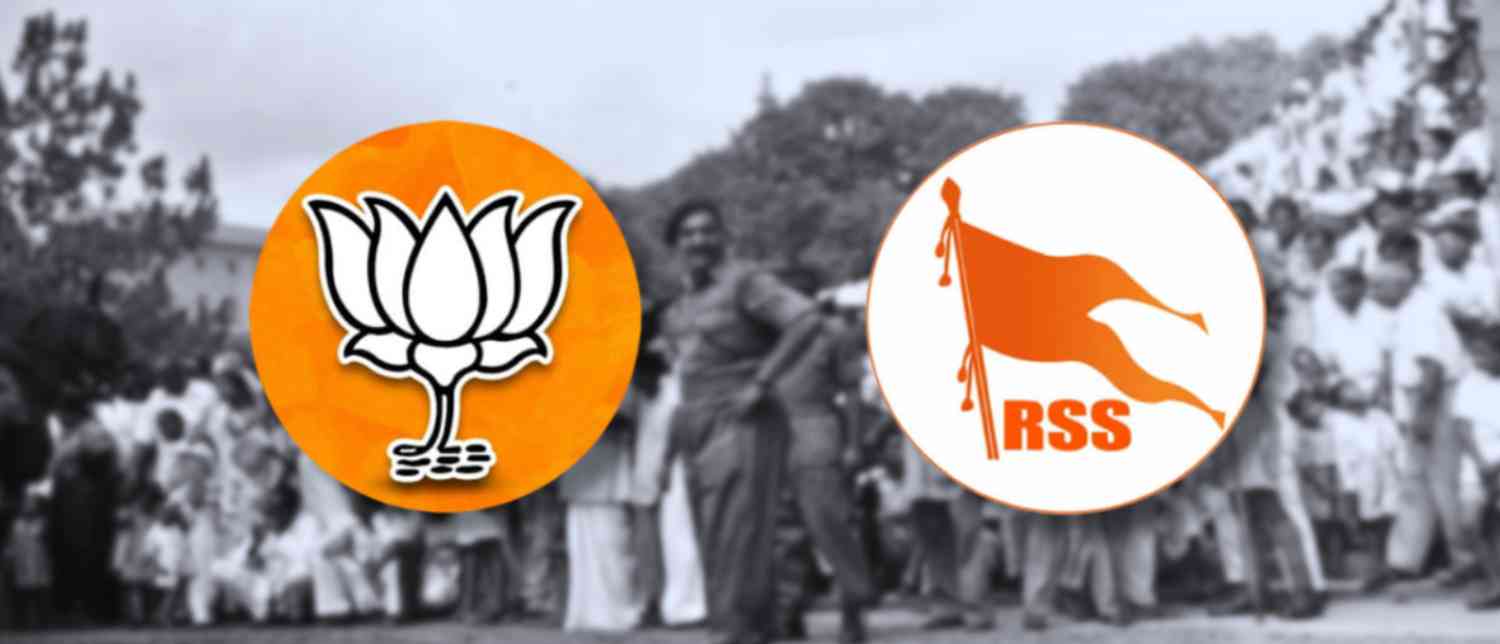Indian history is a long and winding narrative of struggle, sacrifice, betrayal, and eventual victory. At its heart lies the freedom movement—an extraordinary epoch when millions of ordinary men and women, cutting across caste, community, and creed, poured into the streets to challenge an empire that prided itself on being invincible. Every phase of this movement—from the Revolt of 1857 to Gandhi’s Quit India call of 1942—was marked by immense courage and a willingness to suffer for the idea of freedom.
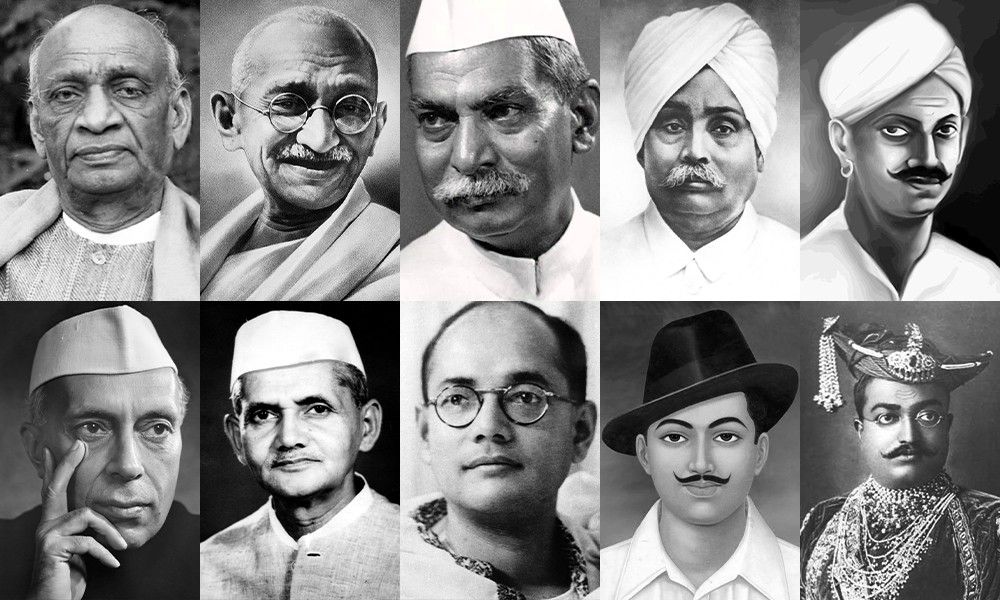
But in recent years, a loud and persistent claim has emerged: that the Rashtriya Swayamsevak Sangh (RSS) and its political arm, the Bharatiya Janata Party (BJP), played a central role in the freedom struggle. The claim sounds ambitious, almost heroic, but when placed under the lens of history, it soon begins to resemble not fact but fiction—one of the most carefully nurtured myths in India’s public imagination.
This editorial examines the gap between history and myth, evidence and propaganda, and raises questions that every honest citizen must ask: If the RSS and its ideological ancestors really fought for freedom, why does the record of history remain so silent about it? If they were as central as some leaders claim today, where were they when India’s jails were filling up with satyagrahis, when gallows awaited revolutionaries, and when entire communities rose to challenge colonial power?
The Historical Backdrop
By the early 20th century, India’s freedom struggle had become a nationwide people’s movement. The Indian National Congress, born in 1885, had gradually transformed from a debating club of elites into the primary vehicle of anti-colonial politics. This transformation was not linear or smooth—it was often marked by splits between moderates and extremists, conservatives and radicals. Yet, despite their differences in strategy, they all retained one mission: complete independence.
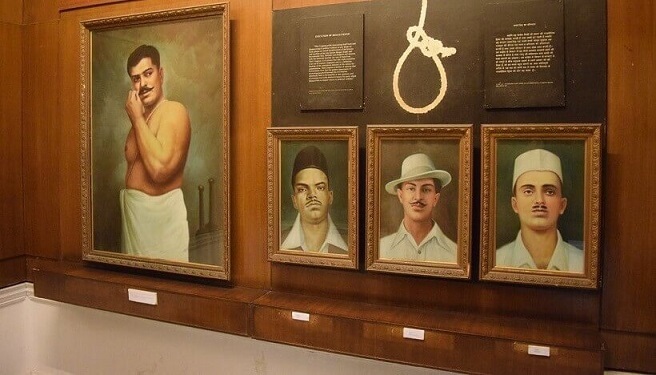
Alongside the Congress, revolutionary groups such as the Hindustan Socialist Republican Association (HSRA), the Ghadar Party, and scores of underground networks kept a parallel flame of armed struggle alive. Leaders like Subhas Chandra Bose emerged with their own distinct approaches, even raising armies abroad to confront British rule. Across the spectrum—Gandhians, revolutionaries, socialists, peasants’ unions—there was one thread of commonality: active confrontation with colonial power.
It is within this landscape that the RSS was born in 1925 in Nagpur, under the guidance of K.B. Hedgewar, an ex-Congressman turned cultural-nationalist. Hedgewar’s project was never about direct confrontation with British imperialism; it was about building a uniform, disciplined Hindu society as a counter to what he saw as the communal and fragmented condition of Indians. Unlike the Congress or the revolutionaries, the RSS avoided protests, boycotts, or satyagraha.
This deliberate detachment is not incidental—it is central to understanding why the RSS is absent from freedom narratives. Its founders believed that political agitation distracted from the larger work of cultural consolidation. As a result, while Indians were being beaten on the streets of Bombay during Quit India or languishing in cellular jails in the Andamans, the shakhas of the RSS remained insulated, conducting drills, Sanskrit prayers, and social gatherings.
The Silence During Critical Junctures
Let us test the narrative of RSS and BJP contribution against key milestones of the freedom struggle:
-
Non-Cooperation Movement (1920-22): A mass awakening that shook British foundations. Hedgewar initially joined Congress-led boycotts but soon retreated. The RSS, established just a few years later, chose to stay focused on cultural training, not political confrontation.
-
Civil Disobedience (1930): As Gandhi marched to Dandi and broke the salt law, tens of thousands filled prisons. No major evidence exists of RSS cadres participating.
-
Quit India (1942): The decisive battle before independence. With Congress banned and much of its leadership behind bars, India erupted in fury. Rail lines were cut, offices torched, and slogans demanding “Do or Die” filled the air. The RSS, however, chose silence. Even British intelligence noted their restraint, commending them for keeping away from Congress-led uprisings.
It is in moments like Quit India that history reveals itself most clearly: those who remained absent during the storm cannot credibly claim to have steered the ship.
Ideological Stance Towards the Freedom Struggle
Perhaps the most revealing element is the ideological predisposition of the RSS leadership. Hedgewar and later M.S. Golwalkar repeatedly emphasized that the RSS was not a political movement against colonial rulers but a social mission for Hindu unity.
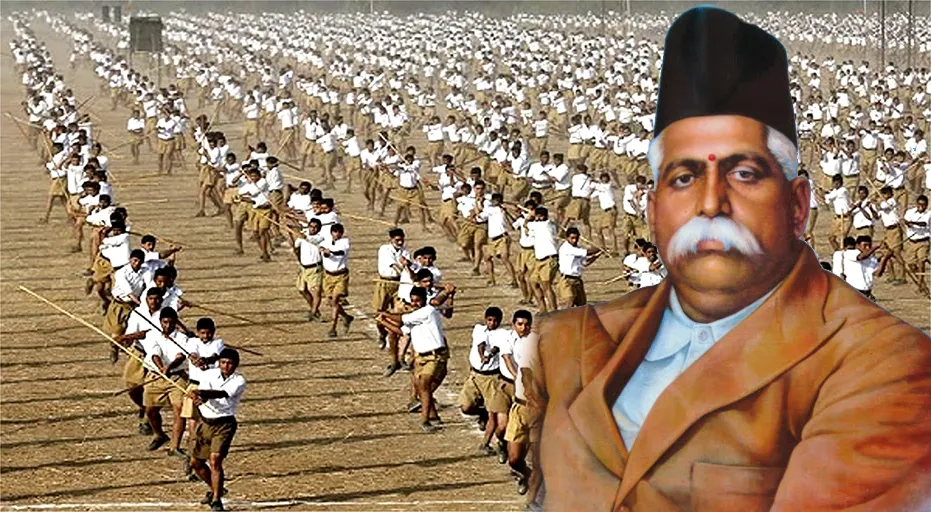
In Golwalkar’s writings, the primary danger was not British imperialism but internal divisions—particularly the presence of Muslims and Christians, who were seen as threats to Hindu society. In such a worldview, colonialism almost receded into the background, relegated to a secondary problem.
Contrast this with Gandhi’s all-embracing nationalism, Subhas Bose’s radical anti-colonialism, or Bhagat Singh’s revolutionary socialism, and the difference becomes stark. For mainstream nationalists, the British were the enemy. For the RSS, the “other” lay within Indian society. This explains their reluctance to engage in mass uprisings against colonial rulers.
Constructing the Post-Freedom Narrative
If the RSS did not play a central role in the freedom struggle, how does the BJP now claim otherwise? The answer lies in political necessity.
The BJP, which emerged out of the Jana Sangh in 1951, inherited the ideological DNA of the RSS. For decades, it remained a marginal political force, overshadowed by the Congress, Socialists, and communists. When it rose to power in the late 20th century and particularly after 2014, it faced a glaring historical vacuum: how to lay claim to the freedom legacy without having been part of it?
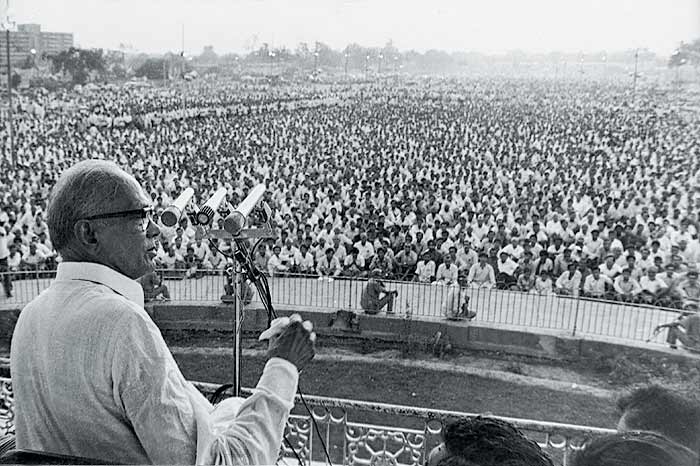
The solution was simple but powerful: rewrite history, exaggerate isolated instances, and elevate fringe participation into heroic epics. Occasional acts of individual volunteers were amplified as organizational contributions. Selective memory was cultivated—whereby merely existing in pre-1947 India was portrayed as active resistance. Over time, these narratives seeped into textbooks, speeches, and media campaigns, until they began to resemble "truths" passed down to the next generation.
The Stakes of Historical Fiction
Why does it matter if today’s ruling party reconstructs its role in freedom history? After all, India is free, the British are gone, and the country has moved on. The answer lies in the power of collective memory.
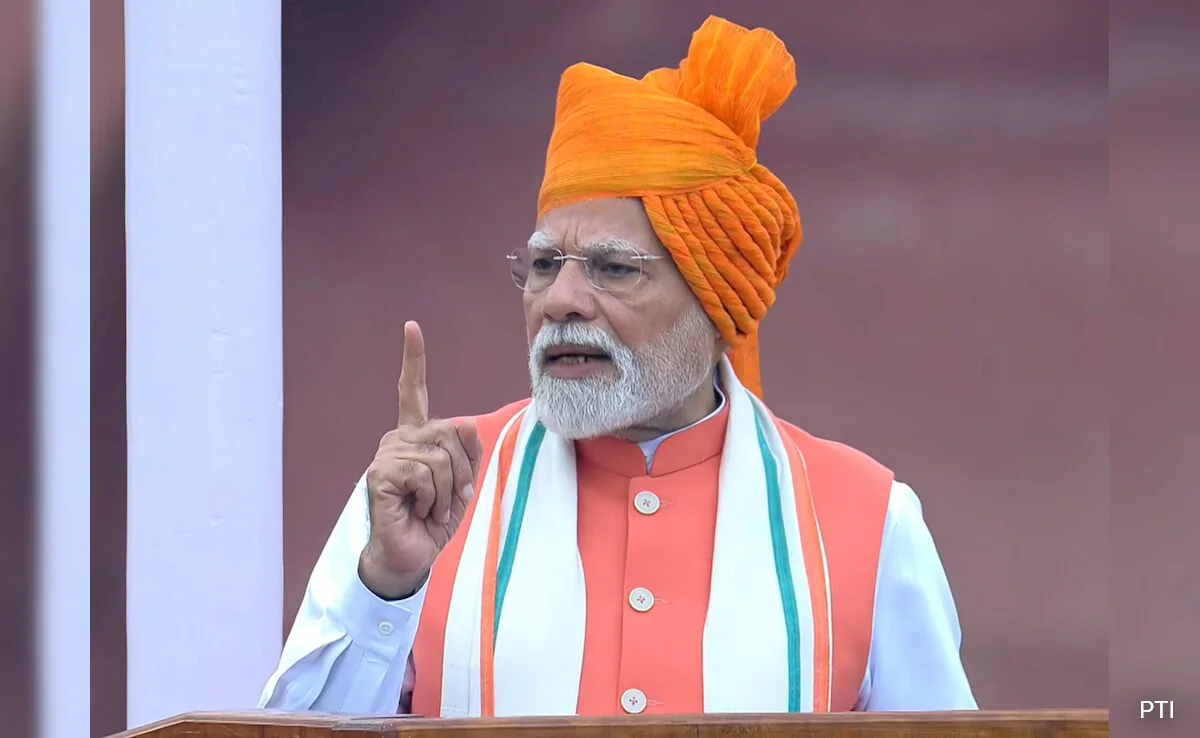
History is not just about the past—it is about legitimacy in the present. By claiming ownership of India’s most sacred struggle, the BJP positions itself as not only a ruling party of today but the rightful heir of yesterday. It allows it to say, implicitly: “We, too, were there when India fought.” Such narratives legitimize power, inspire devotion, and silence critics who may point to ideological contradictions.
But myths become dangerous when they erase real sacrifices. If Subhas Bose, Ambedkar, Gandhi, Nehru, Patel, Tilak, Bhagat Singh, and the thousands of unsung martyrs are gradually reduced to secondary characters in a play where the RSS is cast as the unacknowledged hero, then the tragedy is not merely academic—it is moral. It insults both memory and sacrifice.
The Reality of Freedom’s Cost
Consider what true contribution to freedom looked like. Gandhi spent years in prison, Nehru over a decade, and Subhas Bose went into exile and raised an army. Bhagat Singh walked to the gallows with a smile. Thousands of village women joined clandestine networks, while peasants courted death in revolts from Telangana to Bengal. Tribal leaders like Birsa Munda challenged imperial authority with their lives.
_1757148617.jpg)
Against this backdrop, the RSS remained conspicuously safe. No mass incarcerations, no executions, no revolutionary rupture. Even British records, notorious for their suspicion, rarely note the RSS as a threat. Why? Because colonial officers understood what today’s propaganda disguises: the RSS was not fighting them.
The Fiction in Full Bloom
Today, we hear speeches declaring that the RSS gave the nation its integrity or that the BJP embodies the spirit of freedom martyrs. Government-supported cultural campaigns elevate minor names associated with Hindu revivalist politics as great freedom fighters, while dismissing others as “dynasties” or “compromisers.” This is how fiction blooms—planted in the soil of selective history, watered by political necessity, and shielded from scrutiny by populist fervor.
Yet repetition cannot manufacture authenticity. No matter how many textbooks are rewritten or statues unveiled, the silence of the archives speaks louder. A movement absent from the streets when the empire fell cannot suddenly be reinserted as its chief architect.
What India Really Needs
The question, then, is not merely academic but urgent: What should India pass down to its children? The real or the fictive?
For a nation as diverse and complex as India, memory is fragile. It must be handled with honesty. By inventing participation where there was none, we risk diminishing those who actually gave everything. Worse, we condition future generations to believe that history is malleable, that facts are negotiable, and that myths may be treated as evidence. A society that abandons truth for convenience soon abandons conscience.
If the BJP and RSS truly wish to earn historical legitimacy, it will not come from rewriting the past but from what they do for India’s future. Building institutions, ensuring justice, and strengthening democracy—these will count as contributions more lasting than fiction.
Final Thoughts
India’s freedom struggle is not a story that requires embellishment; it is already extraordinary. The RSS and BJP must be allowed to own their actual role in that history—limited, indirect, peripheral—but not more. To construct a grandiose fiction is to disrespect both history and memory.
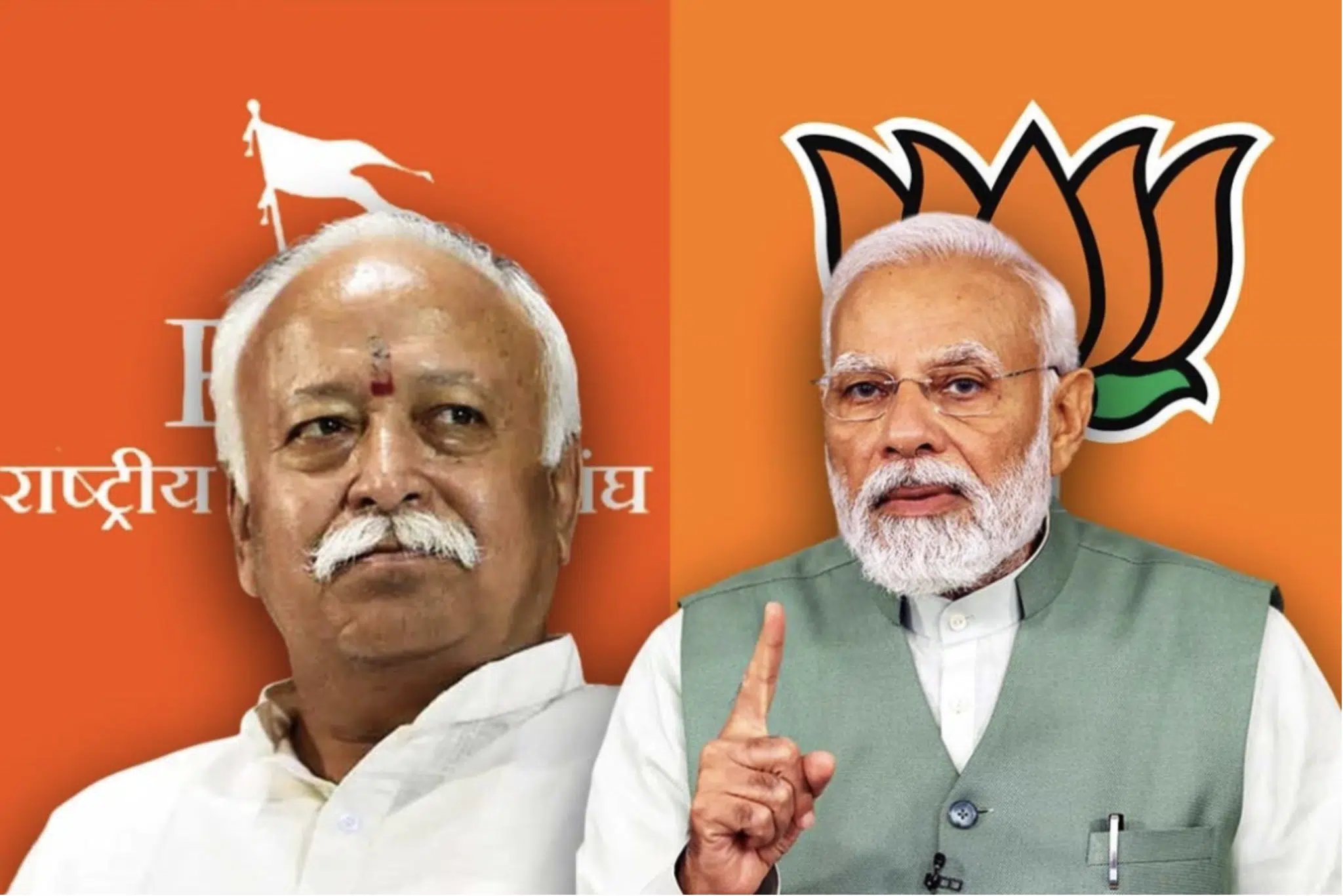
India deserves better: not invented contributions, but an honest acknowledgment of the past. Only then can we say with pride that our freedom was fought for by those who truly stood in the line of fire, not by those who hid behind narratives woven decades later.
With inputs from agencies
Image Source: Multiple agencies
© Copyright 2025. All Rights Reserved. Powered by Vygr Media.

